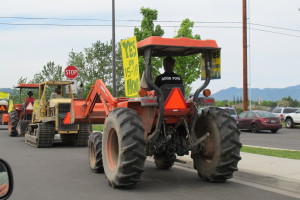Climbing the curve of Permaculture
I have several interesting and sometimes tiresome dialogues going on in my head about growing food. As I’m weeding bed after bed of vegetables sometimes in the hot sun questions roll through my mind like: “Is this really having any significant impact on the state of the world?”, “Should I just leave organic vegetable growing to those that are actually really good at it?”, or “Is any form of annual based agriculture a net contribution to the eco-system with all its tilling, inputs, and deer fencing?” Those questions can certainly take the wind out of my sail particularly on a hot day and when my back starts to ache bedding over the onion bed. Yet I do want to attempt to answer those questions, I want to feel even more connected to the why of vegetable growing. So I thought I would share my musings and my struggles with you so as to not feel as alone in the matter because I know I’m not alone.
The questions I have pinballing around in my mind around seem to have their root in a deep intention of mine to do no harm and to be have a positive impact on my environment. That’s my intention and then there’s reality. As mentioned above there’s several practices that are less than ideal in terms of truly doing no harm whether that harm is in the form of disturbing elk migration patterns or disturbing soil ecology through big tractors till blending up the earth. People seem to have a lot of hope around organic agriculture and I do as well and yet I feel move to point out that there’s quite a ways to go on the learning curve (especially for me personally) to get the point that human food growing actually has a net positive impact on the ecology. The hope for me lies in all the various incredible people I know or read about that are plugging away and steadily moving along that curve on differing fronts. And with the world as it is the opportunities for cross fertilization and collaboration are immense.
I’ve been really feeling these days how much we need each other if to do the learning and work it takes to move beyond a high impact agriculture into a permaculture. Growing our own vegetables is a start, planting a food forest hedgrerow is one too but its just a start. I am grateful to be supported in the ways that I am on this challenging journey towards living in harmony with the land.
So maybe I should relish the fact that there’s still so much journeying to experience, eat some strawberries and just keep learning.
Thanks for reading,
Ryan




